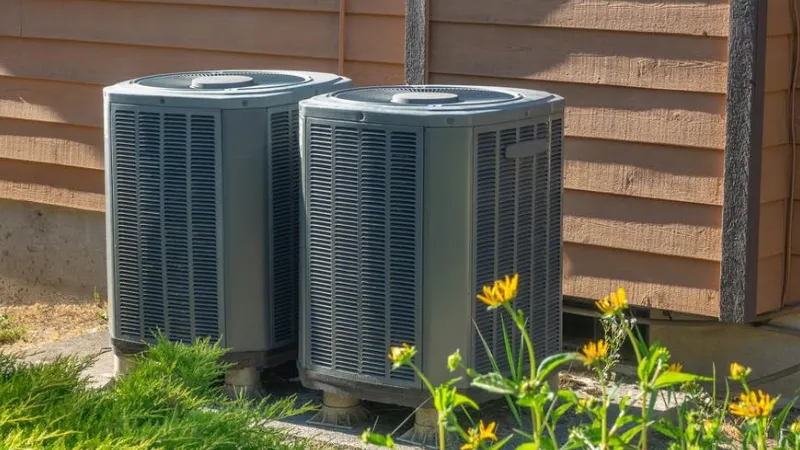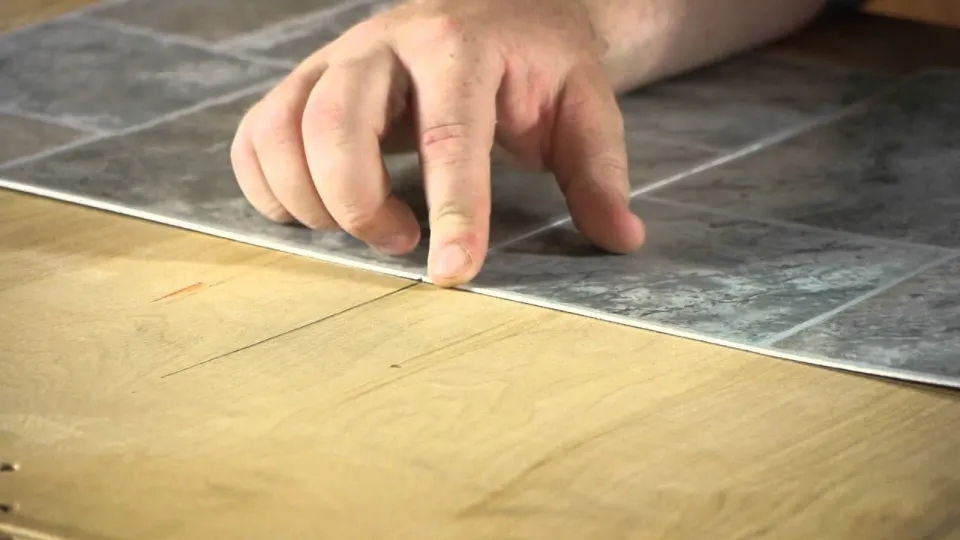This guide includes information on air conditioner prices, unit types, repairs, and an explanation of how AC system prices are determined.
How much does an air conditioner cost? For the installation of a new central air conditioning system, homeowners should budget $5,600 on average. It’s a purchase that could end up boosting energy efficiency and saving you thousands on repairs.
To learn more, keep reading.
How Much Does a New Air Conditioner Cost?
The national average for a new central air conditioning system is approximately $5,600. Central air conditioning systems range in price from $3,800 to $7,500 for high-end models.
Depending on local rates, installation can increase the cost of your air conditioner by $500 to $2,500.
Size
Getting the right size air conditioner to cool your home is important, even though the larger sizes can be costly. You may end up spending significantly more on energy and maintenance if you buy a smaller unit than you need because it will have to work harder to cool your space. If you’re unsure of the size you need, consult a professional before making a purchase.
Brand: The most reliable system can be determined by reading consumer reviews of the leading air conditioning brands. To make sure the HVAC contractor you hire for the installation is legitimate and licensed, you should read reviews about them.
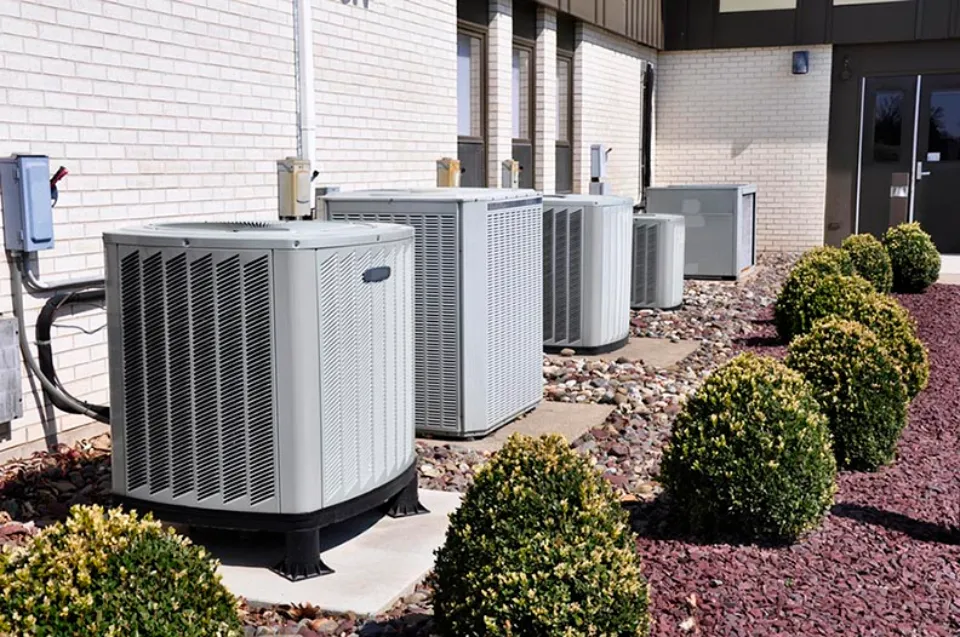
Installation
Depending on the difficulty of the work and the amount of time required, hiring an HVAC technician may be expensive. But since most AC units need professional assistance, this is a necessary expense unless you’re just buying a window unit. It doesn’t hurt to inquire as many contractors provide free consultations.
Seasonal Energy Efficiency Ratio (SEER)
The SEER rating refers to how much energy is needed for cooling output. The unit will operate more effectively and reduce your energy costs the higher the ratio. Between 14 and 24 are typical ranges to look for when making a purchase.
Tax Credits
Utilizing tax credits or rebates on Energy Star-certified energy-saving equipment is an effective way to reduce the cost of your air conditioner. The United States works with Energy Star. The Environmental Protection Agency (EPA) supports environmentally and economically sound manufacturing.
Each of these potential price points gives homeowners looking to install a new air conditioner some flexibility. One way to lower overall cost would be to change the system type.
When you buy a home, you’ll probably take on a property with some older appliances already installed. One of them may be a replacement air conditioner.
In this situation, purchasing a home warranty might be a smart move. When necessary home systems and appliances malfunction, a home warranty covers the cost of repairs and replacements. With one of these contracts, you only have to pay a service call fee ($60 to $125, depending on your plan), and the home warranty company sends a certified technician to your home to diagnose the issue and make the necessary repairs or replace the unit. For a year of coverage, a home warranty typically costs $300 to $600.
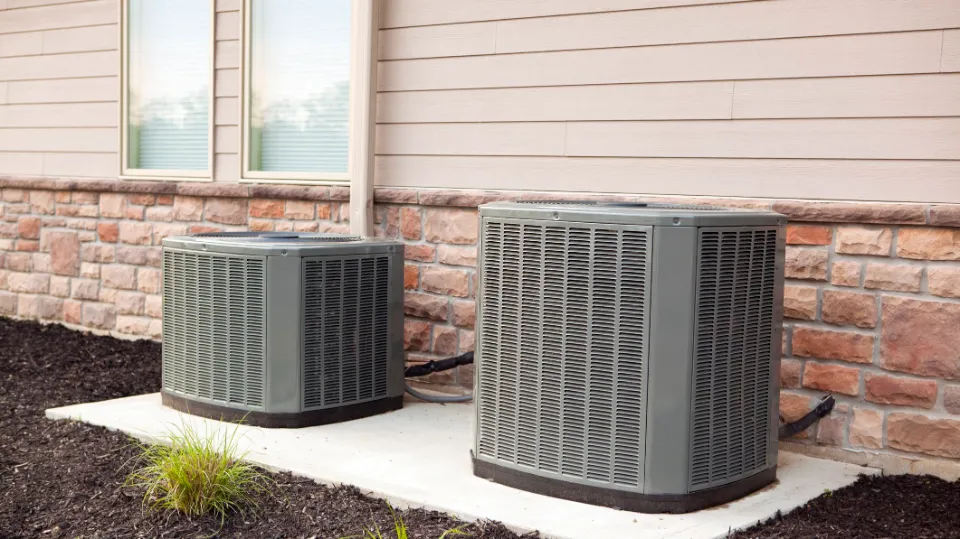
Types of Air Conditioners
More choices than just price must be made when selecting an AC system. Your home may require a certain type, or you may prefer one type over another based on your comfort. The five most popular air conditioners and their average costs are listed in the following paragraphs. If you still need help figuring out what is best for your house, enter your ZIP code below and connect with a local professional:
Central Air Conditioning
Millions of homes across the nation have central air conditioning units, which are the most common type. They take air from inside the house and compress it with refrigerant in the outdoor condensing unit. The remaining gas is then passed through the condenser coils where it is heated to a liquid. The fresh fluid moves to the indoor furnace unit’s evaporator coils, where it cools off and becomes an evaporated gas. The air in your house is distributed throughout by fans and centralized ductwork.
If your home already has ductwork installed, investing in a central air conditioner might be your best choice. Depending on the size and other factors, total average costs for these are typically between $2,500 and $7,000 including installation costs.
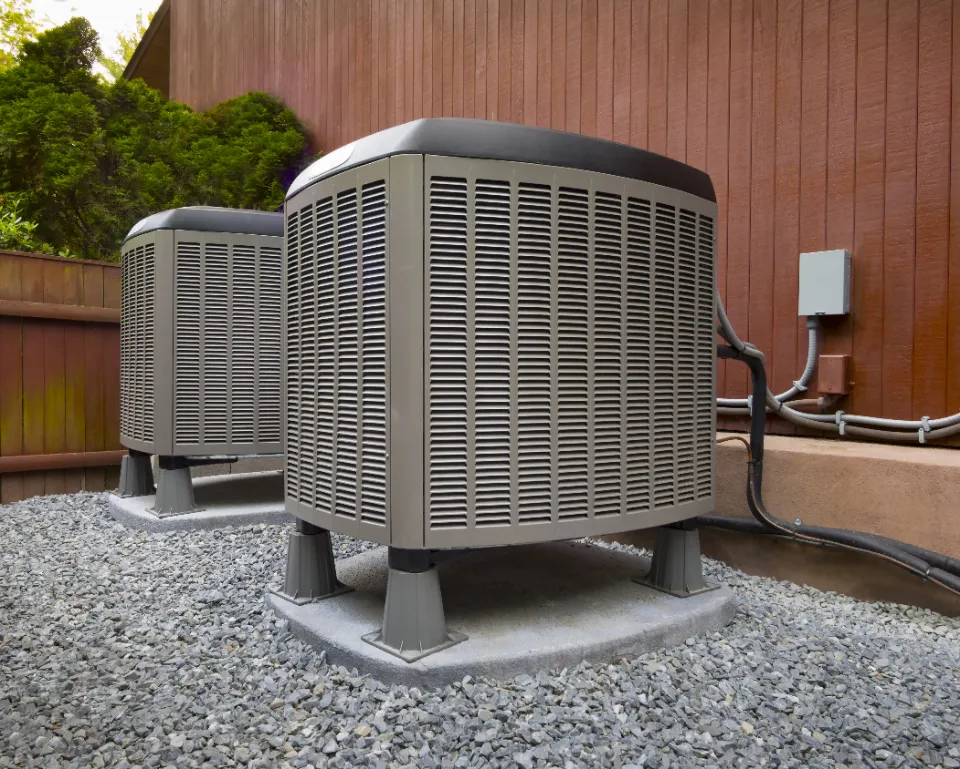
Window AC Unit
The process of cooling air in a window air conditioner is similar to a centralized one, but on a much smaller scale. Instead of cooling the entire house, window air conditioners are only meant to cool the room in which they are installed. They have fans that circulate cool air throughout the space and exhaust hot air out the window.
These units are the cheapest on the market, and they typically don’t require any installation. It takes minutes to set up in your window after being purchased. They’re sold based on power level with room size in consideration. Here are some examples of power levels in British thermal units (BTUs) and their associated square footage:
- 5,000–8,000 BTU: 150–350 square feet
- 8,000–12,000 BTU: 350–550 square feet
- 12,000–18,500 BTU: 550–1,050 square feet
- 18,500–25,000 BTU: 1,050–1,600 square feet
Window air conditioners don’t typically require professional installation, and AC unit costs are as low as $150–$750.
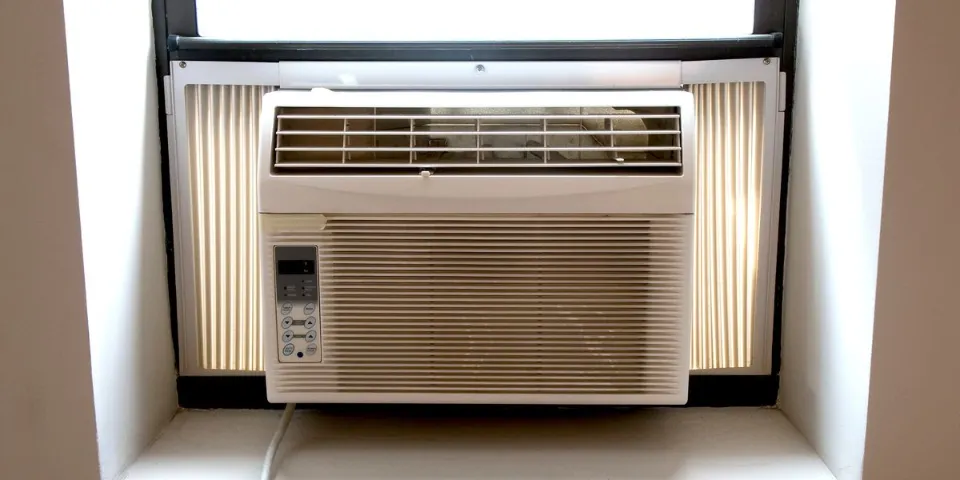
Ductless Mini-Split
Mini-split air conditioners might be the best option if your home doesn’t have any installed ductwork. You can regulate the temperatures in each area of your house. Its reduced electricity consumption and need for only one power supply connection are additional advantages of this kind.
Depending on how many zones you need to cool, these air conditioners can cost different amounts. To put it another way, installing several different indoor units, which can be expensive, will be necessary if your home is bigger. Because of the varying costs, we estimate the total average for units and installation together to be anywhere from $1,500 to $8,000.
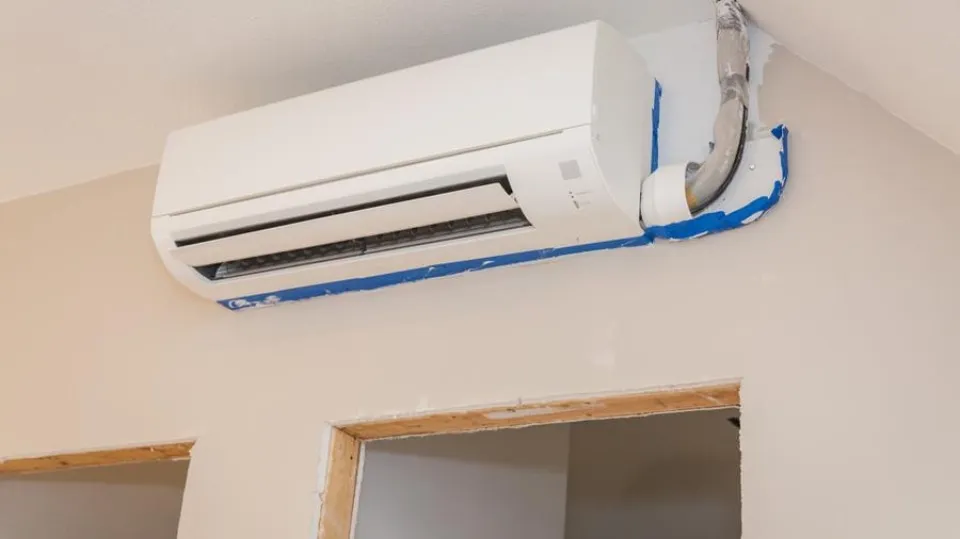
Geothermal
Geothermal heat pumps are HVAC units that use ground-sourced temperatures to provide heat and cooling throughout your home. Heat is captured and transferred into the compressor of the unit using water and antifreeze solution in tubing buried about 4 feet underground. The air is then compressed, directed to evaporator coils where it is heated or cooled to the required temperature, and then blown through the house via central ducts and vents. When cooling, it can also remove hot air from your home and re-inject it underground.
Installation of geothermal heat pumps requires a lot of work, including digging trenches and installing piping. As a result, this is one of the priciest air conditioner options. Total price averages reach $13,000–$36,000. However, it’s one of the most efficient ways to condition the air in your house, using minimal electricity or gas. It could definitely pay off in the long run.
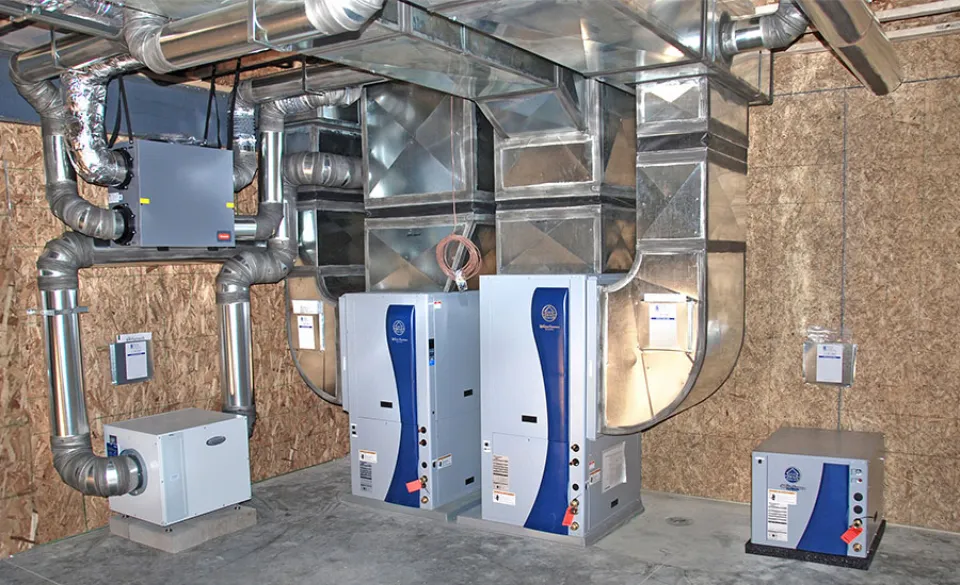
Dual Fuel
Dual fuel systems use the coils on your indoor furnace unit, making them similar to central air conditioners. The main distinction is that they use heat pump technology to assist in reducing the price of your energy bill.
Dual fuel systems are an ideal solution for those living in colder states. When the temperature drops too low for the heat pump to operate effectively, it provides a gas furnace to help heat your house during the winter. The air-source heat from the heat pump can, however, also be used to cool your home by condensing and evaporating cool fluid in the air-distribution components of the furnace unit, which circulates comfortable air throughout the house.
The costs of dual fuel heat pump systems can vary depending on the size needed for the home. The overall average for the installation and unit falls between $4,000 and 8,000. These systems, like geothermal heat pumps, can eventually reduce your energy costs.
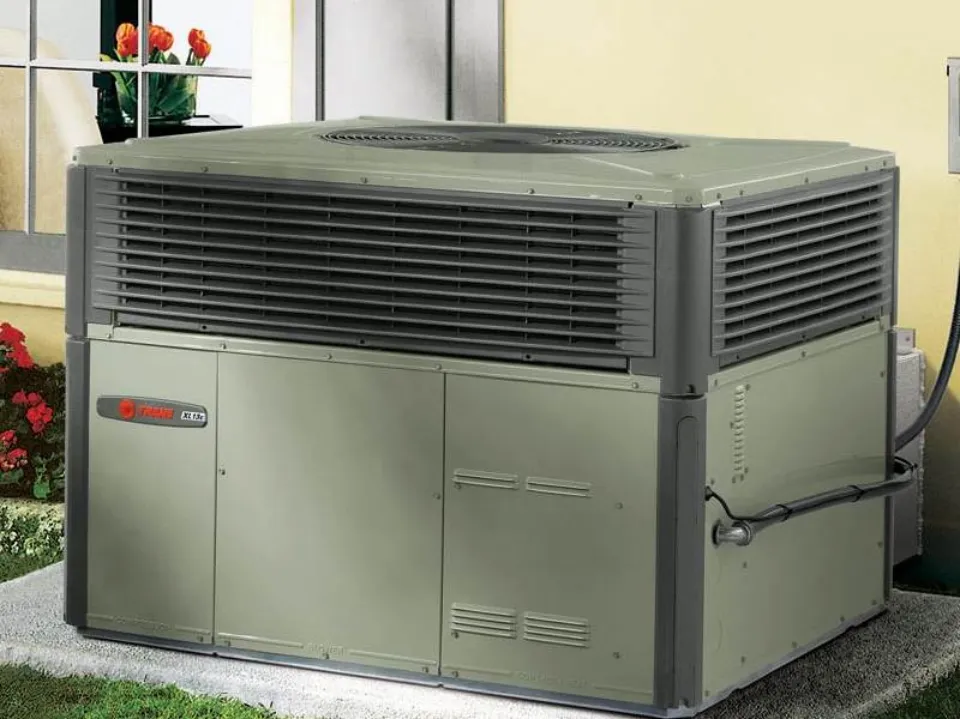
DIY Vs. Professional Air Conditioner Installation
Homeowners should typically hire HVAC specialists to install air conditioning systems. However, there are a few instances when this may be a do-it-yourself (DIY) project.
Professional Installation
All heat pumps, mini-split systems, and central air conditioners must be installed by qualified technicians. These are intricate systems that frequently incorporate ductwork, plumbing, and electricity. For proper operation, they should be installed by a professional. A professional will be able to complete the task efficiently and completely and can also instruct you on how to maintain and operate the system. A higher total cost that takes into account labor is the disadvantage, but this is frequently acceptable.
DIY Installation
Only portable air conditioners and a few smaller window units are suitable for do-it-yourself AC installation. These systems are sold in kits, which frequently call for only a few simple tools and are designed to be installed by laypeople. A professional should typically install large or permanent windows because the units can be heavy. All states require that HVAC technicians maintain a current license because it’s a highly skilled trade. You might be able to save money on labor by attempting to install any central system yourself, but you’ll probably run into issues that require you to call a professional anyhow.
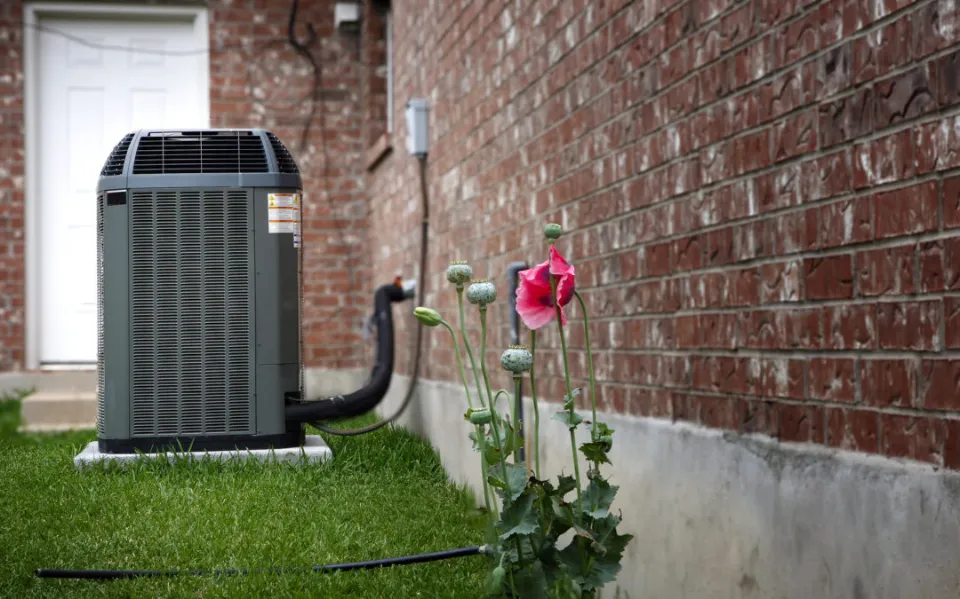
How to Save on Air Conditioner Installation?
Even if you opt for professional installation, here are some ways to save money on your new air conditioner investment.
- HVAC companies are busier in winter and summer when demand is higher. If possible, schedule the installation of your air conditioner for the fall or spring off-seasons.
- Consider a mini-split system instead of a central air conditioner if you need to cool only certain parts of your home, particularly if you don’t already have ductwork.
- Inquire with nearby contractors regarding potential tax credits or rebates for upgrading to a high-efficiency system.
- Maintain your new system regularly to make sure it works for as long as possible. This includes regularly changing filters and cleaning coils as well as getting annual inspections.
- Consider purchasing a home warranty that includes coverage for your HVAC system. These residential service agreements will aid in defraying the cost of repairs for problems brought on by normal wear and tear on your air conditioner.
Read about
- How Much Does a Home AC Recharge Or Refill Cost?
- Why is My Air Conditioner Not Cooling?
- How to Install a Portable Air Conditioner?
How Much Does It Cost to Repair An Air Conditioner?
In some circumstances, it may be more cost-effective to repair your air conditioner rather than replace it. For instance, if your air conditioner is less than ten years old and the broken part isn’t a major one like an evaporator or condenser, you might decide to repair it rather than replace it. Repair expenses can range from $160 at the low end to $1,000 at the high end, depending on the type of air conditioner, the repair issue, and how long it takes to fix the problem. The average is about $380. You can decide whether it is more cost-effective to choose repair over replacement with the help of an HVAC technician.
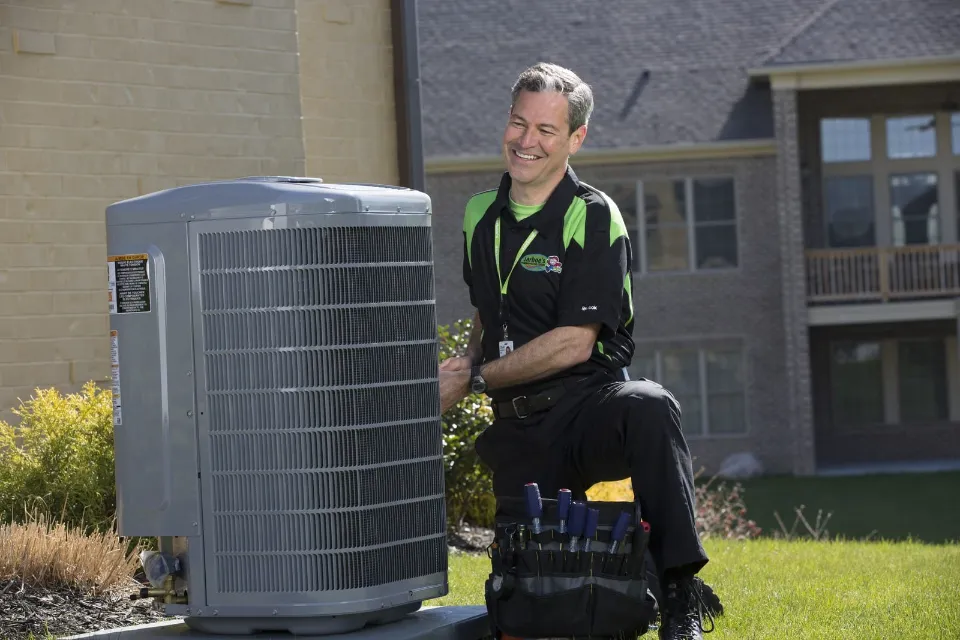
FAQs
How Often Should I Clean My Air Conditioning Air Filter?
When cleaning is necessary, your filter light will typically flash, but we advise cleaning once a season for residential properties and once a month for commercial ones.
Can I Switch My Air Con Off at the Power Point Or Fuse Box?
You can, and if you’re going on a long trip, this might be ideal. Air con units will typically have a low-wattage crankcase heater keeping the compressor warm, and if the compressor gets cold, damage may occur at the startup. Allow 12 hours with the power back on before using your air conditioner if you do decide to turn it off.
Does My Air Con Installer Need to Be Licensed?
Due to the handling of refrigerants, tradies are not permitted to perform any air conditioning installation. All installers and technicians for air conditioning systems are required, according to the Australian Refrigeration Council (ARC), to possess a complete refrigeration and air conditioning license.
They may have a license that only allows them to install split-system air conditioners. We strongly encourage property owners to check whether installers are licensed prior to commencing work.
A variety of tradespeople, including licensed plumbers who can install, maintain, and repair piping and ducting, and licensed electricians who help with the master control panels and wiring needed, can perform air conditioning installation. In essence, you can hire someone for the job as long as they have the appropriate licenses and approvals.
What Size Air Conditioning Unit Should I Choose?
A few crucial factors must be taken into consideration when determining what size air conditioning unit will best meet your needs. You should first determine the size of the air conditioner you need. This may be configured by considering:
- Property size: Larger properties will require more, and multi-storey properties might need units per zone, adding to your price.
- Height of ceilings: To efficiently cool a room with a high ceiling, more air conditioning power is needed.
- Number of windows: Windows have a major effect on keeping your home warm in winter.
Can I Make My Air Conditioner Quieter?
Installing a sound blanket all around a noisy air conditioner can make it quieter. You can erect a fence around it if it’s an outdoor unit to reduce noise. Installing a unit that operates at 70 decibels or lower is, however, your best option for noise reduction. On a hot day, louder units can reach over 80 decibels, and you will likely hear it coming from the garage or a window on the same side of the house. High-efficiency, low-noise models are available from most well-known brands, but they cost more.
Summary: How Much Does An Air Conditioner Cost?
In many homes, a well-functioning air conditioner is an important element. As a result, regular maintenance and repairs are crucial if you want to ensure that the unit lasts a long time.
Nevertheless, even the best-maintained system will eventually deteriorate and require replacement. When it comes to weighing the cost benefits of repair or replacement, using the “$5,000 rule” might be helpful. Divide the repair costs by the AC unit’s age in years. It’s probably more cost-effective to replace the entire unit if the result is more than $5,000. Spend some time carefully weighing your brand, unit type, and efficiency options.
If you have any questions, please leave a comment. My Prime Home tries to give you the best home improvement information. Don’t forget to share the post. Thank you for reading.
